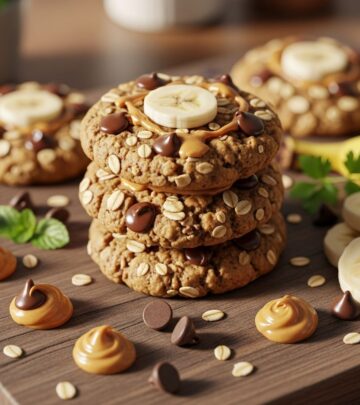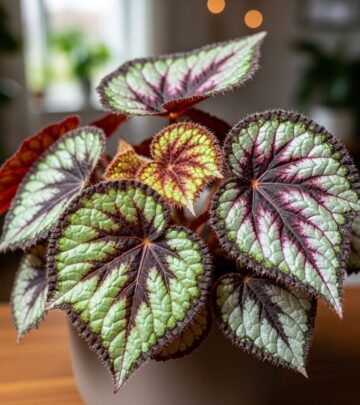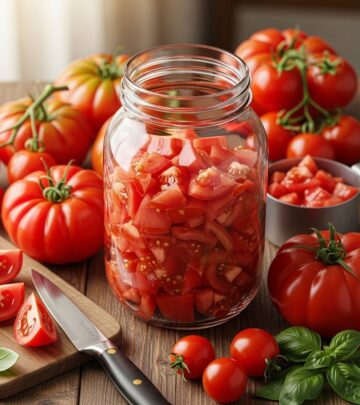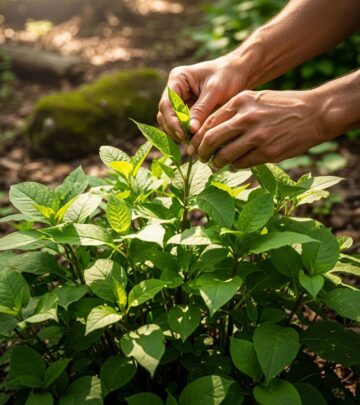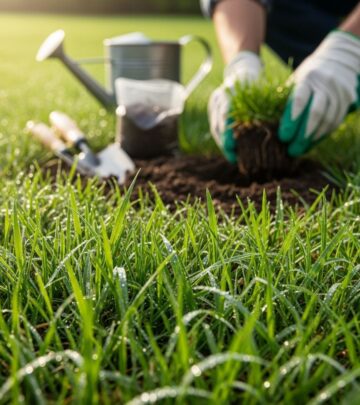Maggots In Compost: Guide To Benefits, Risks, And Prevention
Discover why maggots appear in compost, their role in decomposition, tips for control, and how to keep your compost healthy and odor-free.
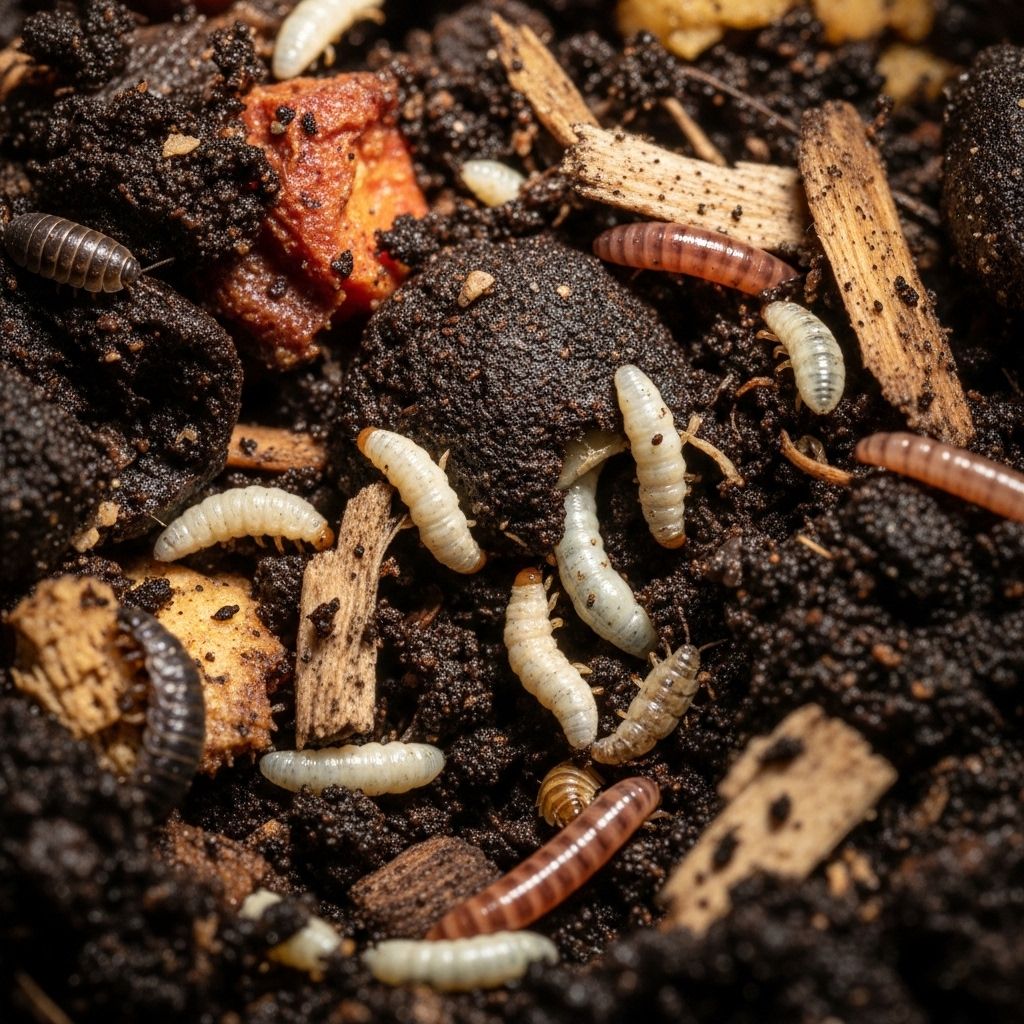
Image: HearthJunction Design Team
Maggots in Compost: Helpful Allies or Unwanted Guests?
For many gardeners, finding squirming maggots in the compost bin can be alarming. Are these wriggling larvae a sign of composting gone wrong, or can they actually benefit your garden’s soil health? This comprehensive guide dives into the types of maggots found in compost, what causes outbreaks, their role in decomposition, and how to effectively manage or prevent them for optimal composting success.
What Are Maggots, and Why Do They Appear in Compost?
Maggots are the larvae of flies. In compost bins, the most common types found are the Black Soldier Fly larvae (BSFL) and housefly larvae. These larvae are drawn to decomposing, moist organic matter, which makes compost piles a tempting breeding ground. While their presence can startle the uninitiated, not all maggots are a sign of trouble—in fact, some may supercharge your composting process.
Types of Maggots Most Commonly Found in Compost
- Black Soldier Fly Larvae (Hermetia illucens)
- Housefly Larvae (Musca domestica)
Black Soldier Fly Larvae
Black Soldier Fly Larvae are fat, grayish-white, and somewhat intimidating in appearance. They are one of the most beneficial decomposers, consuming huge amounts of organic waste very quickly. The larvae help break down food scraps, reduce compost volume, and even suppress populations of less desirable pests.
- Efficiently break down organic waste
- Reduce pathogens and unpleasant odors
- Create a nutrient-rich final product
Housefly Larvae
Housefly larvae, commonly known as typical maggots, are less desirable. They thrive in unsanitary conditions and their presence is often a sign that something in your compost is off-balance, such as excess food waste or excessive moisture. While they do help with decomposition, they can contribute to bad odors and potentially introduce disease.
- Associated with rotting, wet compost
- May be a sign of poor compost management
- Can indicate need for adjustment in composting practices
Are Maggots Good or Bad for Compost?
| Type | Effect on Compost | Recommended Action |
|---|---|---|
| Black Soldier Fly Larvae | Beneficial; accelerate decomposition, reduce odors | Allow or encourage with proper moisture and management |
| Housefly Larvae | Less desirable; may cause odor, unsanitary conditions | Reduce with better balance of green/brown, moisture control |
In summary, not all maggots spell disaster. Those from Black Soldier Flies can turbocharge decomposition. However, if you see lots of common housefly maggots, your compost may need maintenance to restore balance and eliminate strong odors.
Why Maggots Appear: Common Composting Mistakes
Understanding what attracts maggots is key to prevention. The following issues can create prime breeding grounds for fly larvae:
- Compost Imbalance: Too much green (nitrogen-rich) vs. brown (carbon-rich) material makes a dense, moist pile perfect for flies and maggots.
- Inappropriate Food Waste: Adding meat, dairy, oily foods, or cooked leftovers can attract both flies and vermin.
- Excess Moisture: Overly wet compost is especially attractive to egg-laying flies; compost should be moist but not waterlogged.
- Poorly Covered Compost: Leaving food scraps exposed on the compost surface makes it easier for flies to access.
- Lack of Regular Turning: Unturned compost allows wet, anaerobic pockets to develop—ideal for maggots.
How to Prevent Maggots in Your Compost
Prevention starts with good compost management. These practical strategies will help prevent unwanted maggot infestations:
- Balance Green and Brown Materials: Aim for a ratio of roughly 2 parts brown (leaves, straw, cardboard) to 1 part green (fruit/vegetable scraps, coffee grounds) to keep microbes happy and flies at bay.
- Bury Fresh Kitchen Scraps: Always cover food waste with a thick layer of browns to make it harder for flies to find.
- Maintain Proper Moisture: Compost should feel like a wrung-out sponge—damp but not soggy. If it’s dripping wet, add more browns and turn the pile.
- Avoid Adding Animal Products: Keep meat, dairy, oils, and fats out of your compost—they decompose slowly and quickly attract flies.
- Use a Covered Compost Bin: Bins with tight-fitting lids or fine mesh screens can keep flies from accessing the pile.
- Regular Turning: Turn your pile weekly to aerate it, speed decomposition, and discourage fly breeding.
What to Do If You Already Have Maggots in Your Compost
If you spot maggots, don’t panic! Here’s how to handle them based on the type and your composting goals:
If They’re Black Soldier Fly Larvae:
- Consider leaving them—they’re efficient decomposers and can quickly process kitchen scraps.
- If there are too many, reduce food waste input or increase browns to slow their population.
If They’re Housefly Maggots:
- Increase brown materials to dry the pile and make it less attractive.
- Turn the pile frequently to disrupt larvae and create aerobic conditions.
- Sprinkle a thin layer of garden lime (calcium carbonate) to raise pH and deter maggots (use sparingly, as excessive lime can alter compost acidity).
- Make sure all kitchen scraps are buried deep.
If you find the sight of maggots unappealing, know that most will die off naturally as compost dries and heats up. The finished compost, after a few weeks or months, will be maggot-free and safe to use in the garden.
Benefits of Having Maggots in Compost (Especially Black Soldier Fly Larvae)
- Accelerate decomposition of organic materials
- Reduce the overall volume of waste
- Convert waste into nutrient-rich, usable compost
- Suppress odors and some harmful bacteria
- Attract wildlife—black soldier fly larvae can be harvested as chicken feed or fish bait
Maggots, especially BSFL, are nature’s rapid composters. In tropical and warm climates, some gardeners even intentionally introduce them for their benefits.
Risks and Downsides of Maggots in Compost
- Unpleasant Odor: Large outbreaks (especially housefly larvae) may cause strong, offensive smells.
- Attracting Pests: Excessive maggots may attract raccoons, rodents, or birds to your compost area.
- Aesthetic Concerns: For some, the presence of wriggling larvae is simply off-putting.
- Imbalance Indicator: Significant numbers usually point to a management problem—fixing moisture and food balance is crucial.
How to Get Rid of Maggots in Compost (If Needed)
- Add more dry, carbon-rich material (leaves, shredded paper, straw).
- Ensure your compost is not too wet. Allow piles to dry if necessary.
- Turn and aerate regularly to disturb larvae and speed up decomposition.
- Bury all food scraps well below the surface (at least 6 inches).
- Dust top of pile with a small amount of garden lime or wood ash to deter maggots—use cautiously as this raises pH.
- If persistent, use a compost bin with a fine mesh screen cover to keep flies out.
Frequently Asked Questions (FAQs)
Q: Are maggots dangerous for my compost or garden?
A: Most maggots (especially Black Soldier Fly larvae) help break down waste and are not harmful. However, too many housefly maggots may indicate poor composting conditions that need correction.
Q: Will maggots make my compost unsafe to use?
A: No, finished compost that has fully decomposed and been allowed to mature does not contain live maggots. It will be safe and beneficial for your soil and plants.
Q: How can I tell if I have Black Soldier Fly larvae or housefly larvae?
A: BSFL are usually larger, grayer, and more segmented than the small, white, slender housefly maggots. BSFL tend to move more slowly and are more robust.
Q: Is it okay to feed Black Soldier Fly larvae to chickens?
A: Yes, many poultry keepers harvest BSFL as a nutritious, protein-packed treat for chickens.
Q: What should I do if I can’t stand the sight of maggots?
A: Adjust your compost pile by increasing browns, reducing moisture, and burying kitchen scraps. Sprinkling some garden lime can also help. Over time, with proper management, maggot numbers will decrease.
Quick Tips for a Maggot-Free Compost Bin
- Layer food scraps beneath browns as soon as you add them
- Keep your compost bin covered during fly season
- Check moisture regularly—avoid soggy piles
- Turn your pile every week
- Remove or thoroughly bury any animal products
Conclusion: Maggots—Nature’s Unsung Composting Heroes
While the sudden appearance of maggots can be unsettling, they are often a sign that your compost is biologically active. Black Soldier Fly larvae in particular are powerful allies in breaking down waste, while housefly larvae signal a need for pile adjustments. With a balanced approach and a little composting know-how, you can harness their power or prevent them from appearing altogether—leaving you with nutrient-rich, odor-free compost for a thriving organic garden.
References
Read full bio of Srija Burman





